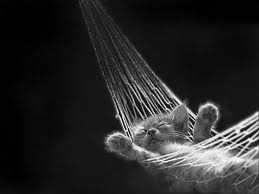Thursday is the apex of my work week stress curve. I sit in court all day and represent children in abuse and neglect proceedings. The subject matter, even after twenty years in the business, is stressful—for me and for the parties, certainly, but also for the other attorneys, the courtroom staff, the social workers, and most especially for the judge.
This week we had a blue light special on Upset Teenagers. Seems every time I picked up the phone it was another, “Miss Grace, you have to get me outta here…” Sometimes, the clients are upset because their mom and dad won’t Parent Up, sometimes they’re upset because the social worker has dropped the ball (one of at least twenty he or she is expected to juggle) and sometimes—these are the most upset kids—they’re upset because they’ve screwed up again, and they figure if they pitch a loud enough tantrum, somebody will focus on placating the tantrum rather than holding the kid accountable for bad choices and worse behavior.
My clients are not dumb, nor do they lack for determination. Even in a tough week, I admire my clients immensely.
Part of what makes child welfare law so difficult is that often, all of the options before the judge have significant risks and downsides, and nobody hands out crystal balls with those black judicial robes. My clients have run off and come to bad ends, they’ve been sent home (where they begged to go) only to see Mom or Dad come to a bad end.
Probably more than you wanted to know, and not the point of this diatribe.
 The point is, when I get home on Thursday nights, I want to be the baby. I do not want my dial set to “give,” I want it set to “regain my balance.” To this end, I try to arrange matters so I never have to stop for groceries on Thursday evening, never have to put gas in the tank, never have to socialize. I come straight home, where I proceed to…
The point is, when I get home on Thursday nights, I want to be the baby. I do not want my dial set to “give,” I want it set to “regain my balance.” To this end, I try to arrange matters so I never have to stop for groceries on Thursday evening, never have to put gas in the tank, never have to socialize. I come straight home, where I proceed to…
Make a big pot of decaf Constant Comment or Lemon Lift tea.
Divest myself of all courtroom attire and slip in to my play clothes.
(Play clothes includes fuzzy socks. Must have thick, warm fuzzy socks. Must.)
 Light my Midnight Jasmine candle, burn a couple sticks of cedar incense.
Light my Midnight Jasmine candle, burn a couple sticks of cedar incense.
Make a PBJ for dinner, or whatever I want for dinner, but I can promise you, it won’t involve cooking or cleaning up.
Develop a case of temporary blindness about dust bunnies, sticky counters, or gritty floors. All that stuff will be there tomorrow—nobody will steal my housework.
Fuss around on the computer but without any assigned task, not even re-reading whatever I might have written that morning before heading off to work.
In short, I get absolutely unstructured time for a few hours each week. I’ll take a keeper read to bed with me—an old friend guaranteed not to disappoint—and for Friday morning I generally don’t set the alarm.
 I need this ritual to decompress, and it has taken me years to stumble on what works for me in terms of processing the week and regaining my balance. Some of what I do to cope has symbolic significance (changing my clothes), and some is just for animal comfort.
I need this ritual to decompress, and it has taken me years to stumble on what works for me in terms of processing the week and regaining my balance. Some of what I do to cope has symbolic significance (changing my clothes), and some is just for animal comfort.
But I am not the only person with a job that sometimes gets to me. We’ve all come across small comforts, little gestures and routines that take us in the direction of self-nurture and comfort.
Care to share some of yours?








